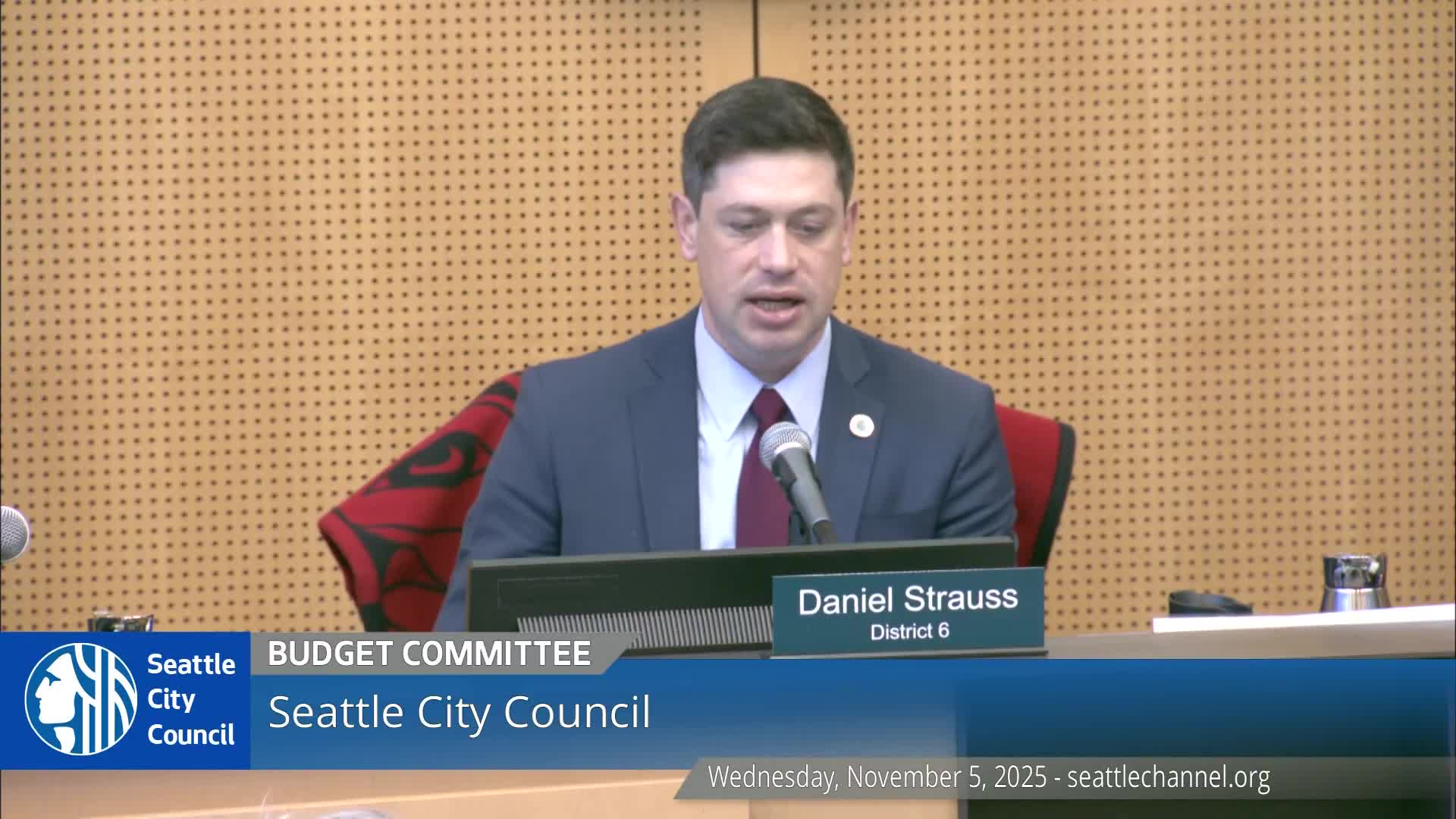Chair Strauss unveils balancing package focused on housing, food assistance and reserves
Get AI-powered insights, summaries, and transcripts
Subscribe
Summary
Chair Dan Strauss introduced a balancing package supported broadly by council members and the mayor that directs new and reallocated funds toward affordable housing, emergency food assistance, public-safety responses and reserves, while preserving a mix of onetime and ongoing spending to protect fiscal sustainability.
Chair Dan Strauss, chair of the Select Budget Committee, presented a balancing package at the Nov. 5 committee meeting that he said aims to invest “in a safer, more affordable Seattle for working families.” The package, assembled with mayoral support and input from all council members, includes both onetime and ongoing elements to fund housing, food assistance, crisis response and city services.
Strauss said the package accounts for an immediate response to a federal lapse in Supplemental Nutrition Assistance Program payments. “Instead of standing by, we took immediate action and approved $4,000,000 per month in emergency funding for food banks and meal programs,” Strauss said, and he noted the package includes $4,000,000 of that spending and reserves to protect against additional federal disruptions.
The package contains a major affordable housing commitment: Strauss cited $349,500,000 directed to affordable housing programs, a level he described as five times the city’s 2019 investment. He described expansions in non-police crisis response (doubling CARES crisis responders), additional firefighters, investments in mental-health and drug-treatment programs, and capital and maintenance funding for parks and community facilities including Lake Union Park, Schmitz Preserve and the Green Lake Community Center.
Central staff’s revenue review identified roughly $30 million of additional general-fund and JumpStart (payroll expense tax) revenue in the October forecast, interest earnings, and available fund balances in targeted accounts (transportation, REET, parks and SDCI) as the primary sources used to support the package, Director Noble told the committee. Noble said about $4.3 million of new revenues are ongoing and that the package’s ongoing commitments are slightly below the new ongoing revenues, producing a modest improvement in multi-year sustainability.
Noble also flagged uncertainty in tech-sector payroll receipts and noted that the city expects additional B&O/PET revenues in future forecasts that could materially improve out-year projections.
Committee members questioned and discussed several technical and policy choices—how arts-admission tax revenues should be treated going forward, which items are treated as onetime versus ongoing, and how central staff will track prior versions of council budget actions. Noble said full prior packets and CBA (council budget action) versions are available online and staff can provide lists of excluded items on request.
Remaining process steps: self-balancing amendments are due Friday at noon and committee votes are scheduled for the following Friday and possibly the following Monday. Remote public comment was scheduled for 1 p.m. the next day and an in-person hearing for 5 p.m. that evening.
The package, as presented, contains a mix of targeted one-time investments and several ongoing items; committee members said they intend to file further amendments before the Friday deadline to refine priorities or restore higher funding levels on some items.
